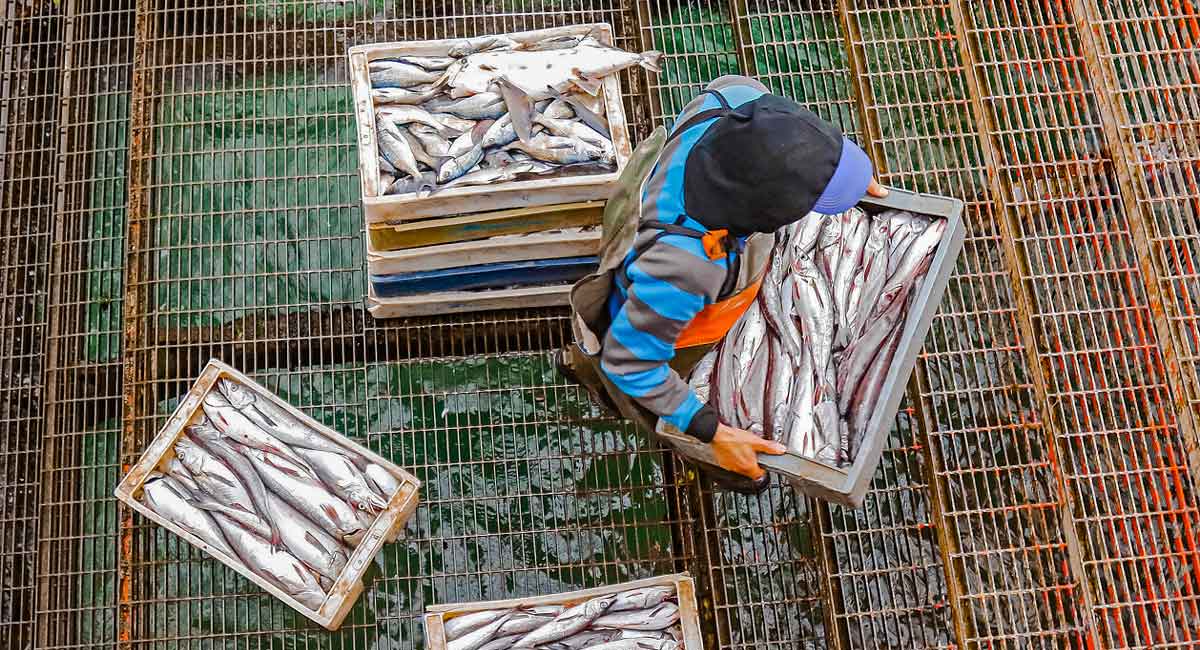-
The initiative was financed by the PA Cooperation Fund, and executed by the Undersecretariat of Fisheries and Aquaculture of Chile, through the Universidad de Concepción and the Future of Fish Foundation.
The coronavirus directly affected the economic activities of all sectors worldwide. The Pacific Alliance (PA) countries were no exception. It is in this context that the project “Promoting the marketing and consumption of artisanal fishery and aquaculture products in the Pacific Alliance, in order to contribute to mitigating the effects of the COVID-19 pandemic” was born.
The initiative, financed by the PA Cooperation Fund, and developed during 7 months, ended with an online workshop to share the results, strengths and difficulties of the process, and the experiences on the measures taken in each country to face and mitigate the effects of the pandemic.
Juan Fernando Cifuentes Restrepo, from Colombia Productiva and current Coordinator of the Technical Group on Fisheries and Aquaculture (GTPA) of the PA, indicated that this project was born within the framework of the work plan of this instance and that “it is the materialization of its lines of work, of course, since it has counted on the work and commitment and the contribution of the experience of different actors from the four member countries, whom I thank for all their effort and the time dedicated to this initiative”.
He also reflected on the importance of implementing this type of initiative, and that hopefully this is the first step of many, “since with interventions as relevant as this one, and I say relevant because it seeks to favor and support men and women engaged in artisanal fishing and aquaculture, strengthening their productive and commercial skills and generating new capacities, which results in the generation of higher income and, of course, positive effects on their living conditions,” he said.
Julio Jorquera Guerrero, technical manager and member of the International Affairs Unit of Chile’s Undersecretariat of Fisheries and Aquaculture, Subpesca, said that the value of this project was to bring together virtually men and women from the four PA countries who live around artisanal fishing and aquaculture.
“During the course of the execution, common gaps became evident, among them, low digitalization and connectivity, as well as associativity. The interest of users in exporting, as well as in training in food safety and marketing, was also evident. It is these sectoral needs that set the tone for what we must continue to work on as PA,” he said.
The Subpesca professional also noted that “it is important to give value to the products developed in this project, such as the Women’s Network booklet, the strategy to increase consumption and the COVID learning process. These documents provide guidelines to the four countries (public and private entities), as well as to the GTPA, on how to strengthen the marketing and consumption of the products.
Sandra Ferrada Fuentes, a researcher at the Universidad de Concepción, Chile, and coordinator of the executing team, said that it was a challenging task in which “networking and international collaboration were essential. We exchanged knowledge and experiences with the GTPA focal points, which allowed us to have a great representativeness and geographical coverage, broadening our perspective and approach”.
Finally, she thanked all the representatives for their willingness and commented that, although the challenges faced by artisanal fisheries and aquaculture are many and complex, “they require the collaboration of governments, industry, local communities and international organizations to find sustainable solutions. The joint work of the Pacific Alliance’s GTPA is a step in the right direction to address them effectively”.
All the material generated during the implementation of the initiative, such as informative documents, webinars, videos of the member countries, will be available on the PA website, specifically in the section corresponding to the Fisheries and Aquaculture Technical Group.
The initiative was financed by the Pacific Alliance Cooperation Fund. For its materialization, a resource transfer agreement for USD 105,900 was signed between the Chilean Agency for International Cooperation and the Undersecretariat of Fisheries and Aquaculture of the Government of Chile, the latter being responsible for the execution of the project, through the Universidad de Concepción de Chile and the Future of Fish Foundation.
Review the final meeting of the initiative “Results dissemination workshop”.

